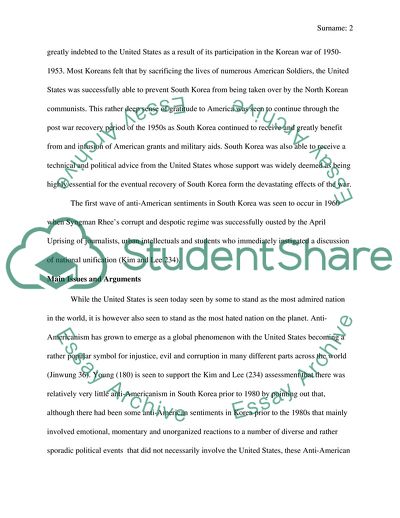Cite this document
(Anti-Americanism and Pro-Americanism Literature review Example | Topics and Well Written Essays - 1750 words, n.d.)
Anti-Americanism and Pro-Americanism Literature review Example | Topics and Well Written Essays - 1750 words. https://studentshare.org/history/1807034-anti-americanism-and-pro-americanism
Anti-Americanism and Pro-Americanism Literature review Example | Topics and Well Written Essays - 1750 words. https://studentshare.org/history/1807034-anti-americanism-and-pro-americanism
(Anti-Americanism and Pro-Americanism Literature Review Example | Topics and Well Written Essays - 1750 Words)
Anti-Americanism and Pro-Americanism Literature Review Example | Topics and Well Written Essays - 1750 Words. https://studentshare.org/history/1807034-anti-americanism-and-pro-americanism.
Anti-Americanism and Pro-Americanism Literature Review Example | Topics and Well Written Essays - 1750 Words. https://studentshare.org/history/1807034-anti-americanism-and-pro-americanism.
“Anti-Americanism and Pro-Americanism Literature Review Example | Topics and Well Written Essays - 1750 Words”. https://studentshare.org/history/1807034-anti-americanism-and-pro-americanism.


